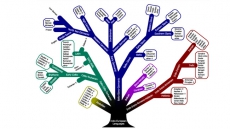Why are some people able to master a new skill quickly while others take longer? That is because the neural activity in quick learners is different from that in slow learners, reveals a study.
The findings suggest that recruiting unnecessary parts of the brain for a given task -- similar to thinking over a problem -- plays a critical role in this important difference.
"It's useful to think of your brain as housing a very large toolkit," said lead researcher professor Scott Grafton from University of California Santa Barbara.
"When you start to learn a challenging new skill, such as playing a musical instrument, your brain uses many different tools in a desperate attempt to produce anything remotely close to music."
"With time and practice, fewer tools are needed and core motor areas are able to support most of the behaviour," he explained.
However, beyond a certain amount of practice, some of these cognitive tools might actually be getting in the way of further learning, the researchers found.
The study participants played a simple game while their brains were scanned with fMRI.
The technique measures neural activity by tracking the flow of blood in the brain, highlighting which regions are involved in a given task.
Surprisingly, the participants who showed decreased neural activity learned the fastest.
The critical distinction was seen in the frontal cortex and the anterior cingulate cortex -- thought to be most critical for executive function.
"In fact, good executive function is necessary for complex tasks but might actually be a hindrance to mastering simple ones," Grafton said.
Grafton also said that the frontal cortex and the anterior cingulate cortex are among the last brain regions to fully develop in humans, which may help explain why children are able to acquire new skills quickly as compared to adults.
"People who can turn off the communication to these parts of their brain are the quickest in their completion times," said lead author Danielle Bassett from University of Pennsylvania.
The findings were published online in Nature Neuroscience.





